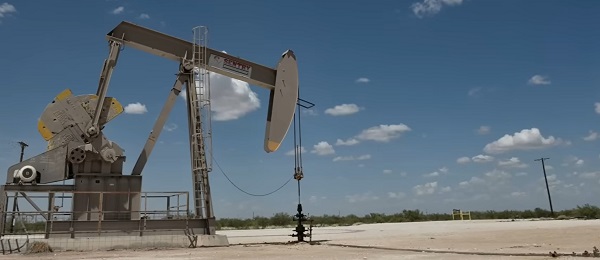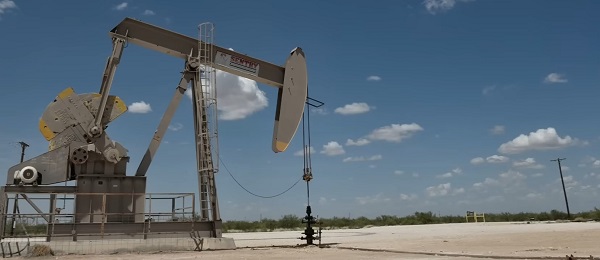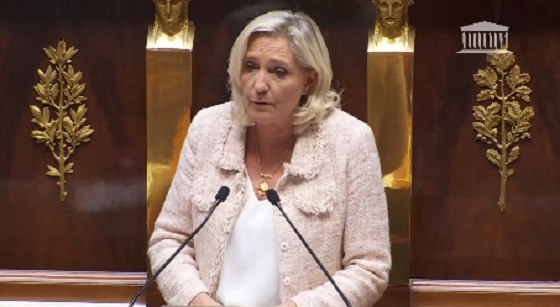Energy
OPEC Delivers Masterful Rebuke To Global Energy Agency Head


From the Daily Caller News Foundation
By
Some readers will remember the infamous May 2021 report from the International Energy Agency (IEA) titled ‘Net Zero by 2050: A Roadmap for the Global Energy Sector.’ The report projected a roadmap for transforming the world’s $300 trillion oil-and-coal-based energy system into one that runs on unreliable, intermittent alternatives like wind and solar.
Most educated observers viewed the report as a piece of propaganda coming from an agency then in the process of transforming itself from a historically reliable source of real data and analysis into just another advocate for the climate alarm narrative. It surprised no one when, just a few years later, Fatih Birol, head of the IEA, publicly boasted about that exact transformation as being the agency’s overt mission now.
One passage in the report’s set of recommendations immediately caught everyone’s eye due to its boldness and transparent illogic. That passage says, “There is no need for investment in new fossil fuel supply in our net zero pathway.”
To reinforce this stunningly absurd notion, Birol, in an interview published by the Guardian upon the study’s release, insisted that, ”If governments are serious about the climate crisis, there can be no new investments in oil, gas and coal, from now – from this year.”
It was a moment when the formerly respected agency shed a great deal of its credibility.
Making matters worse for Birol and IEA, barely a month later a spokesperson for the IEA urged OPEC to “open the spigots” to raise oil production to meet rising global demand that was outstripping the agency’s forecasts as the world recovered from the COVID-19 insanity. Three months after that, Wood MacKenzie, Rystad, and Moody’s had all issued studies directly contradicting IEA’s absurd assessment, and Birol was joining former President Joe Biden in calling for U.S. oil producers to drill more wells and produce more oil.
This sort of ill-advised posturing and self-contradiction is what happens when a scholarly enterprise consciously lurches into advocacy.
At this past week’s CERAWeek conference in Houston, Birol contradicted himself one more time, telling attendees, “I want to make it clear … there would be a need for investment, especially to address the decline in the existing fields. There is a need for oil and gas upstream investments, full stop.”
This latest impulse to respond to the next new thing surely surprised no one. But it was a bridge too far for officials at OPEC to sit by and absorb silently. In a March 13 statement posted on the OPEC website, the cartel reviewed Birol’s and IEA’s recent history of inconsistency and urged Birol to take a step back and consider the impacts it has had and will continue to have on investments for the future.
“Aside from the risk of whiplash that such severe yo-yoing between positions could cause, a serious point needs to be stressed,” OPEC writes. “The world needs unambiguous clarity on the realities of the future of supply and demand. Agencies that recognize the responsibility that comes from offering analysis of the long-term perspectives of the industry should not be shifting positions or mixing messages and narratives every couple of years on this matter, particularly ones that were founded to ensure the security of oil supplies.”
Oof. Blunt, but true. It is a dressing down that is well-deserved and long overdue.
Does Birol’s latest shift signal a recognition that the energy transition for which it has advocated has failed? It’s hard to know.
Regardless, once an agency like IEA makes a public decision to transform itself away from sterile analysis into the realm of advocacy, going back will be hard. Aside from the loss of credibility, which has only increased as Birol has lurched from one position to another and back again, such a transformation completely shifts the organization’s culture. Going back now will require time and a great deal of organizational pain.
Here, another obvious question arises: Is Fatih Birol the right person for this job? It is a question that should have arisen before the loss of so much credibility and trust. For the 32 member countries who subscribe to the agency and pay its bills, there is no time like the present to determine the answer.
David Blackmon is an energy writer and consultant based in Texas. He spent 40 years in the oil and gas business, where he specialized in public policy and communications.
Energy
The IEA’s Peak Oil Fever Dream Looks To Be In Full Collapse


From the Daily Caller News Foundation
U.S. Energy Secretary Chris Wright warned International Energy Agency (IEA) head Fatih Birol in July that he was considering cancelling America’s membership in and funding of its activities due to its increasingly political nature.
Specifically, Wright pointed to the agency’s modeling methods used to compile its various reports and projections, which the Secretary and many others believe have trended more into the realm of advocacy than fact-based analysis in recent years.
That trend has long been clear and is a direct result of an intentional shift in the IEA’s mission that evolved in the months during and following the COVID pandemic. In 2022, the agency’s board of governors reinforced this changed mission away from the analysis of real energy-related data and policies to one of producing reports to support and “guide countries as they build net-zero emission energy systems to comply with internationally agreed climate goals” consistent with the Paris Climate Agreement of 2016.
Dear Readers:
As a nonprofit, we are dependent on the generosity of our readers.
Please consider making a small donation of any amount here.
Thank you!
One step Birol and his team took to incorporate its new role as cheerleader for an energy transition that isn’t actually happening was to eliminate the “current policies” modeling scenario which had long formed the base case for its periodic projections. That sterile analysis of the facts on the ground was replaced it with a more aspirational set of assumptions based on the announced policy intentions of governments around the world. Using this new method based more on hope and dreams than facts on the ground unsurprisingly led the IEA to begin famously predicting a peak in global oil demand by 2029, something no one else sees coming.
Those projections have helped promote the belief among policymakers and investors that a high percentage of current oil company reserves would wind up becoming stranded assets, thus artificially – and many would contend falsely – deflating the value of their company stocks. This unfounded belief has also helped discourage banks from allocating capital to funding exploration for additional oil reserves that the world will almost certainly require in the decades to come.
Secretary Wright, in his role as leading energy policymaker for an administration more focused on dealing with the realities of America’s energy security needs than the fever dreams of the far-left climate alarm lobby, determined that investing millions of taxpayer dollars in IEA’s advocacy efforts each year was a poor use of his department’s budget. So, in an interview with Bloomberg in July, Wright said, “We will do one of two things: we will reform the way the IEA operates, or we will withdraw,” adding that his “strong preference is to reform it.”
Lo and behold, less than two months later, Javier Blas says in a September 10 Bloomberg op/ed headlined “The Myth of Peak Fossil Fuel Demand is Crumbling,” that the IEA will reincorporate its “current policies” scenario in its upcoming annual report. Blas notes that, “the annual report being prepared by the International Energy Agency… shows the alternative — decades more of robust fossil-fuel use, with oil and gas demand growing over the next 25 years — isn’t just possible but probable.”
On his X account, Blas posted a chart showing that, instead of projecting a “peak” of crude oil demand prior to 2030, IEA’s “current policies” scenario will be more in line with recent projections by both OPEC and ExxonMobil showing crude demand continuing to rise through the year 2050 and beyond.
Whether that is a concession to Secretary Wright’s concerns or to simple reality on the ground is not clear. Regardless, it is without question a clear about-face which hopefully signals a return by the IEA to its original mission to serve as a reliable analyst and producer of fact-based information about the global energy situation.
The global community has no shortage of well-funded advocates for the aspirational goals of the climate alarmist community. If this pending return to reality by the IEA in its upcoming annual report signals an end to its efforts to be included among that crowded field, that will be a win for everyone, regardless of the motivations behind it.
Energy
Trump Admin Torpedoing Biden’s Oil And Gas Crackdown


From the Daily Caller News Foundation
By Audrey Streb
The Trump administration is rolling back President Joe Biden’s restrictions on oil and gas, planning 21 lease sales in 2025 — a sharp contrast to Biden’s first year, which saw none.
The Department of the Interior (DOI) and the Bureau of Land Management (BLM) have already held 11 lease sales under Trump generating over $110 million for Americans, and plan to host 10 more in 2025, the agency told the Daily Caller News Foundation. While the Biden administration imposed a sweeping offshore drilling ban and greenlit a record-low offshore oil and gas leasing schedule, the Trump administration is working to reopen development on federal lands and waters.
“President Donald Trump has revived American energy. While the Biden administration left our energy resources to waste at the cost of taxpayers, Americans can feel relief knowing that they now have an administration laser focused on unleashing our domestic energy sources, lowering costs, and securing a more affordable and reliable energy future,” Interior Secretary Doug Burgum told the DCNF. “The number of new oil and gas lease sales simply speak for themselves.”
Bureau of Land Management (BLM) has reported 3,608 new oil and gas permits in Trump’s second term thus far, compared to 2,528 permits during the Biden administration, according to the DOI. Trump and the DOI have approved 43% more federal drilling permits than his predecessors had at the same point in their presidencies, according to the agency.
The DOI has also opened more than 450,000 acres of federal land for potential energy development, and the DOI and BLM are set to approve more drilling permits than any other fiscal year in the past 15 years, the agency said.
On his first day back in the Oval Office, Trump signed an executive order to “unleash American energy” and declared a national energy emergency. The One Big Beautiful Bill Act (OBBBA) further directed the DOI to open more domestic energy exploration opportunities, ordering the agency to “immediately resume onshore quarterly lease sales in specified states.”
Trump has emphasized bolstering conventional resources, which stands in contrast to Biden’s stifling of the oil and gas industry, as he froze liquified natural gas (LNG) exports, blocked the major Keystone XL pipeline and halted BLM lease approvals on his first day as president. Biden instead championed a green energy agenda, pushing for major wind and solar projects through billions in subsidies, loans and grants.
Notably, the National Oceanic and Atmospheric Administration (NOAA) previously confirmed to the DCNF that the Biden administration failed to adequately review the environmental impacts of certain offshore wind projects before approving them. The Trump administration has cracked down on offshore wind, halting many major projects and reviewing several more, with Burgum arguing that the energy resource the Biden administration favored is “not reliable enough” at an event on Sept. 10.
Additionally, gasoline prices have been dropping nationally in recent months, with costs hitting four-year lows headed into summer and Labor Day weekend, according to GasBuddy and the American Automobile Association. The average retail price for gasoline is projected to keep dropping due to falling oil prices, according to data from the Energy Information Administration.
“[Oil] prices are not set by current supplies. They’re set by future expectations,” Diana Furchtgott-Roth, director of the Heritage Foundation’s Center for Energy, Climate, and Environment, told the DCNF previously. “President Donald Trump is sending signals that the oil industry here is going to be very vibrant. He’s shrinking permitting time for fossil fuel projects, so expectations for fossil fuel supply in the United States are great.”
-

 Frontier Centre for Public Policy2 days ago
Frontier Centre for Public Policy2 days agoEvery Child Matters, Except When It Comes To Proof In Kamloops
-

 Crime2 days ago
Crime2 days ago‘Radicalized’ shooter dead, two injured in wake of school shooting
-

 Crime2 days ago
Crime2 days ago“Hey fascist! Catch!”: Authorities confirm writing on alleged Kirk killer’s bullet casings
-

 Daily Caller1 day ago
Daily Caller1 day ago‘You Have No Idea What You Have Unleashed’: Erika Kirk Addresses Supporters For First Time Since Kirk’s Assassination
-

 J.D. Tuccille2 days ago
J.D. Tuccille2 days agoAfter Charlie Kirk’s Murder, Politicians Can Back Away From the Brink, or Make Matters Worse
-

 International2 days ago
International2 days agoCharlie Kirk Shooting Suspect Revealed: Here’s What His Ammunition Said
-

 Business2 days ago
Business2 days agoUpcoming federal budget likely to increase—not reduce—policy uncertainty
-

 espionage16 hours ago
espionage16 hours agoInside Xi’s Fifth Column: How Beijing Uses Gangsters to Wage Political Warfare in Taiwan — and the West






